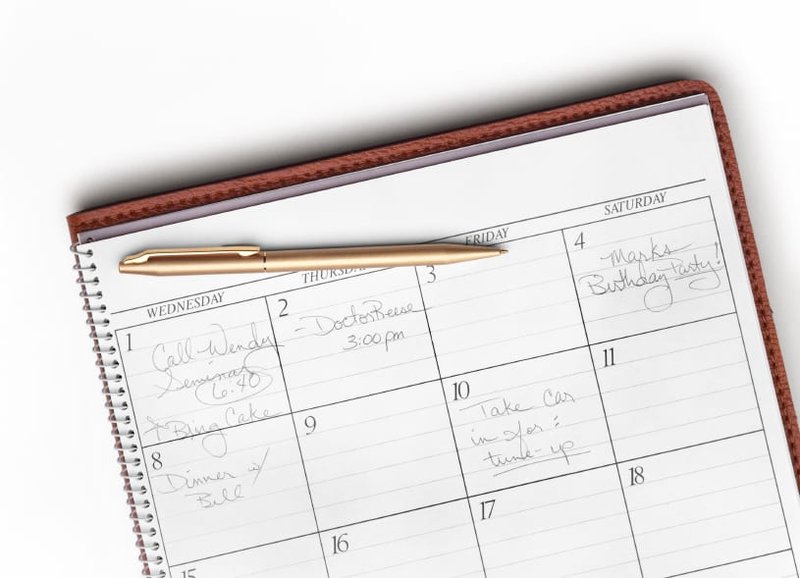Stop Working Harder And Start Prioritizing
Time Management

Prioritizing is not easy and prioritizing when overwhelmed is monumentally more challenging.
In fact, according to David Rock in his book Your Brain At Work, prioritizing is one of the most energy-consuming tasks our brains can perform.
Not only do you have to manage a ton of data all at once in your prefrontal cortex, you have to simultaneously inhibit your emotions so that you can tease out what needs to happen and in what order.
If your emotions get activated (i.e. from overwhelm, anger, stress, frustration) or your brain gets tired, guess what gets harder to do? Yup. Prioritize.
So when you combine all of this physiology with kids running around, your boss adding to the piles on your desk, and an email inbox about to explode, it makes sense why taking the time to plan out your day can feel like an excruciating exercise.
So you skip it.
You dive into your day with reckless abandon trusting your gut (and other people’s reminders) to carry you through.
And you get some things done.
But not as much as you’d like. So the next day you double down your efforts. You get a bit more done. But over time you realize that nearly everything you are accomplishing was due yesterday or today.
So you do the only logical thing: You work harder. You put in longer hours. You won’t stop until the day you are finally ‘caught up’.
Which never comes.
So you skip vacations. You work weekends. You miss dance recitals, weddings, and happy hours with your friends.
And still there is more work to do – right now.
Until one day it hits you:
Working harder isn’t working.
You can’t remember the last time you relaxed without guilt. You carry anxiety with you wherever you go. Before you saw it coming, work has consumed your life.
So how do you break out of this vicious cycle?
You stop and focus on your breath.
Breathe deeply from your belly for 30 seconds (try this now).
This deactivates the stress response that is coursing through your veins and increases oxygen flow to your brain, calming your emotions and allowing you to think more clearly.
Finally, open your calendar and schedule 30 minutes of focused time in the very near future. This is time you will protect from all interruptions, other meetings, and distractions so that you can prioritize your day (try this now).

Now it’s time to prioritize your day.
Here’s how:
- Make a list of all the projects that you have committed yourself to – both professionally and personally.
- Review this list and for each item ask two very important questions:
Can someone else do this project or task for me?
Or even better:
Can I put this project on hold until a later date or let it go entirely?
- Decide what you can let go of or delay. Move all of those items to a separate list and put a reminder in your calendar for when you want to review this list again.
- Decide what you can delegate. For these items ask, “What is the very first thing I need to do in order to delegate this work?” (Hat tip to David Allen for this question).
And then, “What is the next thing after that?” Keep going until you have generated the action steps you need to get this work off your plate.
- Now the last thing you need to do is review your calendar and protect pockets of time to do the work that remains on your list. What gets scheduled, gets done. (Hat tip to the smart person that first said this).
After this 30-minute planning period you will know what you need to commit your time to and where you can get support from others.
You also know when this work is going to be accomplished.
This ritual will take practice to become a habit. Experiment. Let it evolve. See what works best for you.
Here are a few questions to consider as you integrate this planning ritual on a consistent basis:
How will you remind yourself to block this planning time each day?
Are you using the best tools (for you) to keep track of your tasks and projects?
Where do you focus best when doing this kind of thinking? Your office? Coffee shop?
Remember that these are advanced time management skills, so be patient with yourself as you build these new habits.
It can feel counter intuitive, but the way out of overwhelm and overwork is to stop working.
Giving yourself the space to assess your priorities, delegate where possible, and protect your time in your schedule is what actually gets you ahead.
Try it out and see. Your brain will thank you.
Can you relate at all? How much time does it take you to plan your day? How often do you prioritize? Be sure to share your comments and tips below.
Latest Blog posts
![[Free Meditation] The Dangers Of Self-Improvement](/media/images/Free_Meditation_The_Da.2e16d0ba.format-jpeg.fill-590x300.jpg)
[Free Meditation] The Dangers Of Self-Improvement
How you get into the water is less important than actually being in the water.
![[Interview] Resources for Women With ADHD Linda Roggli](/media/images/Interview_Resources_fo.2e16d0ba.format-jpeg.fill-590x300.jpg)
[Interview] Resources For Women With ADHD
I recently sat down with Linda Roggli, PCC, for a quick and informative interview.

10 Hard To Believe (But True) Productivity Statistics
Here are some of my favorite hard to believe productivity statistics that help point out what science has known longer than our society